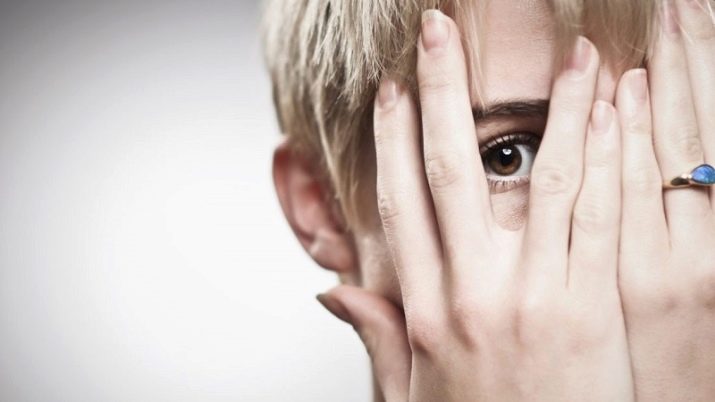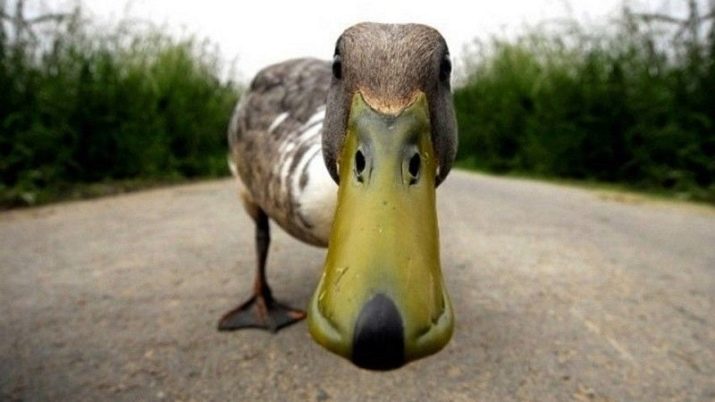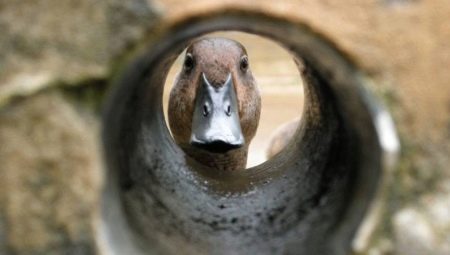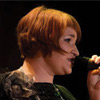Among several hundred human fears, there are so unusual and even strange that one can only be surprised at the unexplored possibilities of the human brain. Such rare and mysterious phobias, in particular, include anatideophobia - fear that there is always a duck in the world that is watching you.
Description
Do not confuse anatidephobia and ornithophobia (fear of birds). With ornithophobia of any shape, no matter what the birds may cause horror, a person is afraid of the bird, its feathers, the sounds it makes, and much more. Anatidaefobes are not afraid of either the sight of ducks or quacking, they are only afraid that one of them is necessarily watching them closely.
How many people suffer from such a phobia is not known for certain; psychiatries are only a few cases available for analysis, so it is premature to draw conclusions about the prevalence of such fear.

A person who is afraid of birds mostly experiences great fear when he encounters a frightening object. With anatideophobia, fear is almost always present, because the patient knows for sure - no matter what he does, wherever he goes, the duck sees everything and watches him closely, attentively, unkindly. Ducks can hardly be called good-natured birds. They, like geese, tend to manifest aggression against a person, flap their wings, attack, painfully pinch. And also ducks are incredibly curious and actually really like to watch people like themselves and people.
Nevertheless, fear is irrational, because a duck, even if it watches a person, cannot harm him by this action. However, the deep sections of the brain suffering from human anatidephobia recognize the very idea of a duck being followed as a danger signal.A strange phobia can border on a persecution mania, a delusional state, then a person may need a completely different treatment.
Is this phobia a disease? In the full sense of the word - no. But she refers classified as phobic mental disorders, classified as isolated phobia by the International Classification of Diseases.
The disorder is called so pretentiously due to the merger of the two words - anatidae - ducks, waterfowl and "phobos" - fear. A ridiculous phobia seems only to those who are not familiar with such fear. Anatidaefobes themselves are usually not laughing.
Of all cases of fear of persecution by a duck, the majority are women - it is they who most often suffer from this phobic disorder.

Causes of occurrence
As already mentioned, in the world there are few people with such a phobia, so there is no way to study the issue globally. The only reasonable reason for mental disorder today, according to experts, may lie in the negative experience of communicating with ducks in childhood and adolescence. Most often, preconditions for phobia develop at the age of 3 to 7–8 years. For an adult, the size of the duck is small. But if the bird rushes at the child, it will seem to him big and scary.
The child could be frightened by a sharply fluttered duck flying past his face, as well as an annoying bird that did not want to be left behind. Try going to the zoo and feed the ducks. One of them (or maybe not one) will necessarily follow you, asking for food. She will follow you along the entire fence until she can, while you are nearby.
Theoretically, an observant child with a rich imagination and excessive sensitivity can pay attention to this feature of waterfowl. If the fright factor is combined with this conclusion, then there is a possibility that the human psyche will fix the relationship - duck-danger-surveillance-stalking.
Further, it all depends on the type of disorder. If the matter is limited only to a phobia, then the fear that the duck is watching will arise when he encounters such a creature, when he sees the duck on TV or in pictures. If a manic delusional state joins in, that a person is constantly convinced that a duck is watching him, then this is a more serious mental disorder. Sometimes fear develops against the backdrop of fear information.
There lived a child and did not know that one could be afraid of a tracking duck. Then he learns about a strange phobia, tries on the patient’s feelings (so we all subconsciously at any age), and the fantasy does its job - a feeling of fear arises. First a little anxiety, and then a full-fledged phobic disorder, if it was not possible to cope with little anxiety.
Important! The exact mechanisms of the formation of this phobia, unfortunately, are unknown, so scientists and doctors can only put forward hypotheses.

Symptoms and signs
The manifestation of anatideophobia is not much different from any other phobic disorder. But there are some nuances, experts say. The whole thing lies in some delirium of fear, so a person can make the impression of a big eccentric. He is almost always in an alarmed state, he may not leave the feeling that the duck is somewhere nearby and is closely watching his actions.
A person often shudders at sudden sudden sounds, and when he sees a real water bird, he can experience a panic attack. The release of adrenaline in the blood provokes an increase in heart rate, increased pressure, palms and back begin to sweat, trembling in the arms and legs may appear. It is difficult to make a swallowing movement - the mouth is dry, the pupils dilate, the skin becomes pale.
In severe cases, short-term loss of consciousness (fainting) may occur. Diagnosis is usually straightforward.Anatidaevfob willingly tells himself that he was so scared, as well as about his suspicions about the "ubiquitous duck that sees everything." At the sight of a duck, a man tries to run away and hide, or, on the contrary, freezes as if rooted to the spot, unable to take a single step.
If a person suffers from this phobia, he will try to exclude from his daily life any mention of these birds. He will not go to feed the ducks on the embankment, moreover, he will always bypass this embankment. He will not buy a toy in the form of a duck, he will not watch cartoons and films in which there are images of ducks. And if a phobia is not connected with a sense of persecution, then it should not cause great inconvenience - not so often we see ducks on the street. But the fear of a tracking duck cannot be eliminated, even if a person perfectly understands that she simply has nowhere to come from nearby.


Treatment
The questions of the treatment of anatidephobia are as acute as the questions of determining the etiology of the disorder. It is believed that standard therapy for phobic disorders can help a person, the issue has not been studied in more detail. Given the mass of "white spots" associated with this strange phobia, it is believed that it is treated rather difficult. Self-help and folk methods are out of the question. First of all, it is important to consult a psychiatrist. Not a psychologist who solves emotional problems, not a psychotherapist who treats standard phobias, namely, a psychiatrist, given that the fear of surveillance by the bird may be associated with delusions of persecution.
Diagnosis consists in talking, conducting standard tests for anxiety, thinking, logic, and depressive disorders. An MRI or CT scan of the brain can be prescribed to rule out organic lesions of the central nervous system. If elements of the persecution mania are detected, inpatient treatment is prescribed with the use of tranquilizers and antipsychotics, a long course of psychotherapy.
In the absence of delirium, but there is a fear of ducks, it is recommended to immediately switch to psychotherapy. Gestalt therapy is considered effective, as well as cognitive-behavioral psychotherapy. The doctor identifies events that had such a strong influence on the patient, sometimes for this you have to immerse the patient in a hypnotic trance. Then the doctor systematically and gradually replaces erroneous attitudes with more positive ones.
With successful treatment, the intensity of fear decreases after a few months, and after six months or a year, a person may even sympathize with ducks in general. In any case, the proposal to go for a walk along the promenade and feed the ducks will not cause fright, a panic attack and other manifestations. Sometimes for treatment it is necessary to use medicines as a not independent, but complex treatment. With severe anxiety, I can be recommended sedatives, antidepressants, sleeping pills for sleep disturbance.
Without treatment, anatidephobia does not go away by itself, it tends to progress, worsen, concomitant mental disorders join, therefore it is recommended to seek qualified medical help as soon as possible.












